Increased wave of fees hits regatta organisers: "Serious intervention": clubs groan under new burden
Tatjana Pokorny
· 25.05.2022
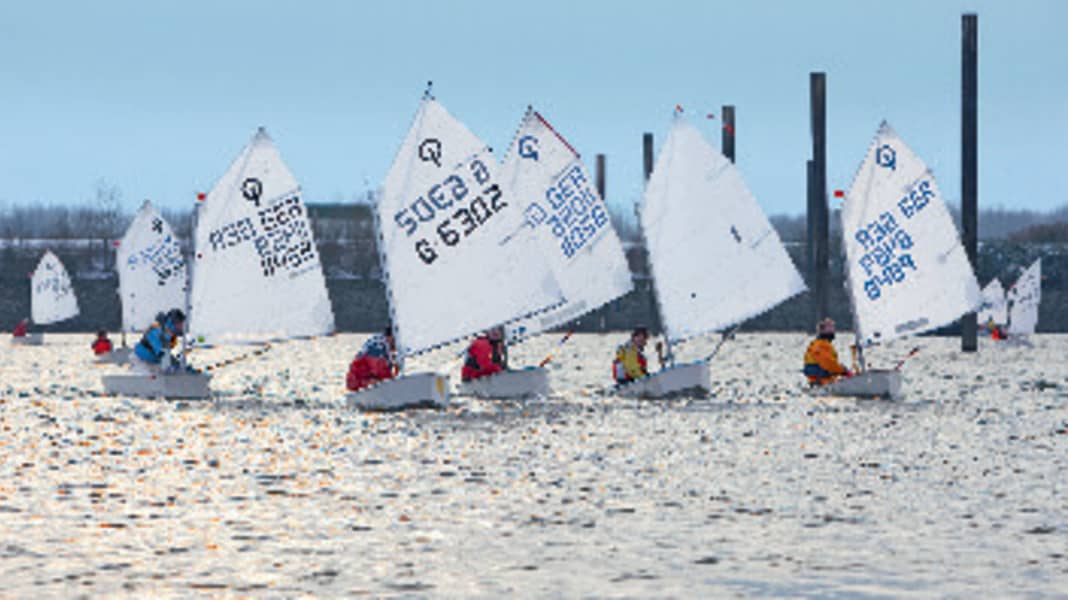
Germany's regatta organisers are groaning under an explosion in fees. The unexpected and drastic increase in shipping licence fees is causing problems for many. This jeopardises the organisation of smaller regattas in particular, because the four- or five-fold increase in fees can no longer be passed on to the participants in a justifiable way or borne by the clubs alone.
The background to the shock that is now reaching more and more clubs as the season progresses with incoming fee notices: because the Federal Audit Office had demanded more transparent and cost-covering fee regulations from the federal ministries, these have been redesigned. One of the reasons for this was the reminder to handle taxpayers' money more carefully. The new fee regulations are now being implemented. Sailing will be affected in the form of notices from the German water and shipping authorities. The many-fold increase in the shipping police permits required for regatta events is causing alarm among clubs and organisers. There are plenty of examples of the blatant increases. For example, the current Baltic 500 double-handed regatta: "Until 2021, we as a club paid 55 euros in fees - regardless of the regatta, whether it was a small club race with 20 dinghies or a large Baltic 500. That has now quadrupled to 213 euros. We might be able to squeeze that out of the Baltic 500, but it will be very difficult for smaller regattas," says Head of Organisation Cord Hall.
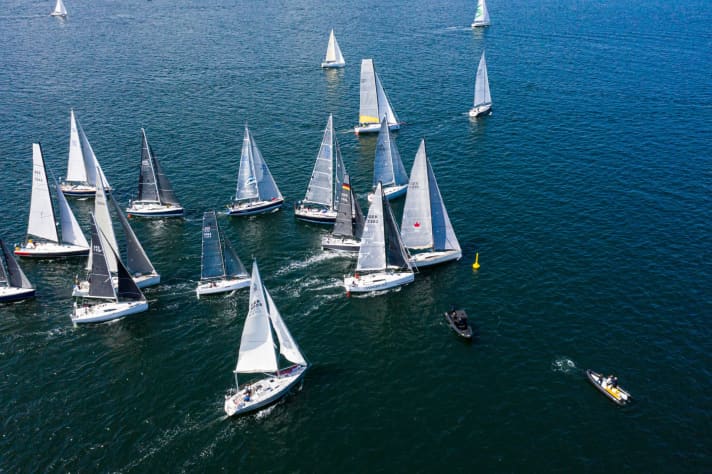
Like many critics, the regatta chairman of the Yacht Club Strande says: "You have to look at what these fees are being charged for. In principle, I am prepared to pay for specific services that are not generally required if I want them. But fee notices with a minimum of 213 euros? I don't know the exact hourly rate of the responsible authority employees, but when I look at what has to be done... When entering the date, global location description and the number of ships, it's also briefly about checking whether the safety of shipping traffic is guaranteed. What do you want to check for more than a quarter of an hour? The club has to clarify for itself anyway whether there may be second or third events running in parallel. That doesn't really explain the high fees to me."
Lawyer Hans Köster from Flensburg reports something similar. In response to the YACHT article on the increase in charter boat acceptance fees ( click here for the report! ), he wrote: "Similarly, the fees in the area of shipping police authorisations required for the organisation of regattas have developed. While, for example, in the area of children for four regattas in 2021, €300 was still paid for five races including expenses, in 2022 the same number of regattas and €1,140 was required." The increase is a huge burden, especially for small and medium-sized clubs. Köster continues: "We discussed this issue at the last board meeting of the Schleswig-Holstein Sailing Association. We are therefore in the process of determining the facts. However, it is already clear that all sailing clubs that organise races will be severely affected by the increase in fees. In both popular and competitive sport, regatta events are already under economic pressure due to the necessary personnel and technical costs for safety, equipment and technology. We agree that the increase in fees in this area represents a serious intervention for sailing."
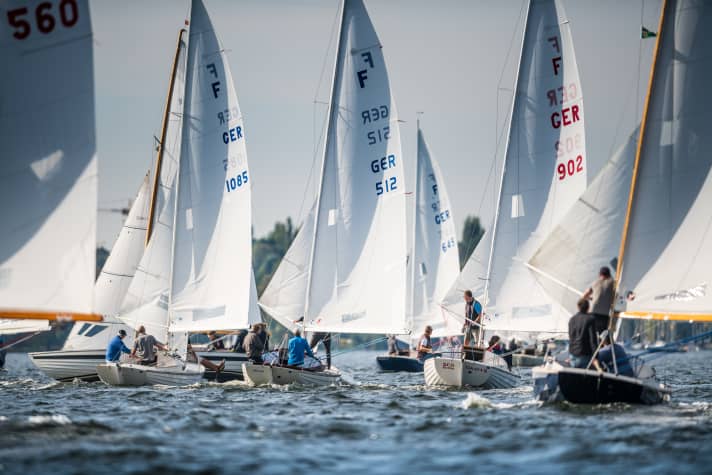
Sören Sörensen, Deputy Chairman of the Blankeneser Segel-Club, also sees this intervention: "The regatta fees have increased by 600 per cent. Until 2021, you paid around 50 euros for a normal regatta. And now our head of finance, Dierk Stein, comes to me and says we have an invoice for 350 euros for the same regatta. That's when we really woke up and realised that the Ministry of Transport had drawn up a new fee guideline under Andreas Scheuer, which is now being enforced centrally from Bonn for all federal states via the water and shipping authorities. There are now two possibilities: Either they no longer take place or they are spontaneously created by a kind of "sailing mob" like flash mobs without an organisational umbrella."
Fact: Bread and butter regattas, as Sörensen calls the mass of normal club races, cost around 50 euros in fees until just now and are now putting pressure on club budgets throughout the country many times over. "You have to pay an additional €10 registration fee per person for a purely legal authorisation that has no added value," says Sörensen, explaining the problem that cannot simply be passed on to the starters for small fields and especially in the children's and youth sector. Which is why the BSC, for example, is now not the only club to at least refrain from officially organising Wednesday regattas. As an alternative, many clubs are now organising spontaneous appointments for group sporting fun. In WhatsApp times, there is no need for an official regatta organisation.
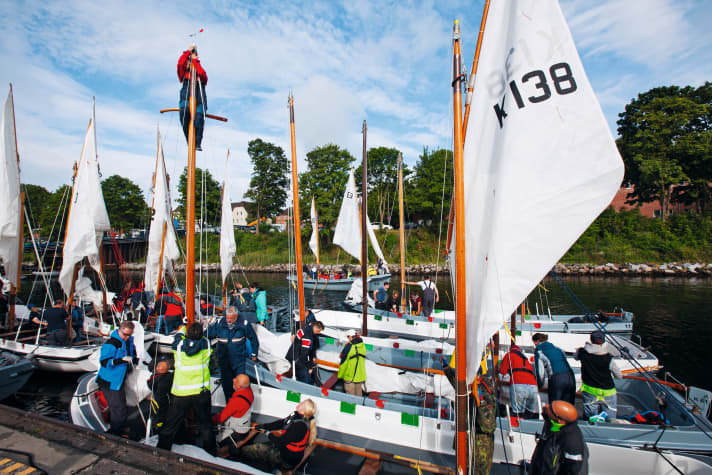
The consequences of the enormous increase in fees have the potential to decimate the club-organised regatta landscape in the medium and long term. It's no fun anyway, says one volunteer organiser about this and other bureaucratic hurdles, having to name a captain for the support boat for the permits three weeks before a regatta, for example, when you don't even know whether there will be anyone to invest their free time in it.
The German Sailing Association (DSV) is aware of the problem. Andreas Löwe, Vice President for Environment and Legal Affairs, says: "What is now hitting the clubs and us as an umbrella organisation are the fees for actions by the water and shipping authorities in the area of maritime shipping. The consequences of this will affect our member clubs through the considerable increase in shipping police licences. The DSV, together with the German Olympic Sports Confederation's Water Sports Forum, has argued against the relevant new fee regulations and in favour of a significant reduction in fees for non-profit associations, but the Federal Ministry of Transport has strictly rejected this. However, it signalled that the work of non-profit associations would be taken into account by always aiming for the lowest range of fees. So if the range is between 213 and 550 euros for a regatta licence issued by the shipping police, then it will generally remain at 213 euros."
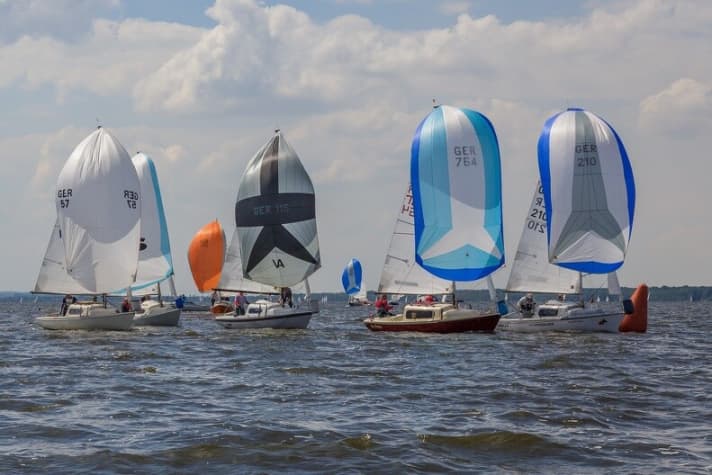
The positive signal will hardly comfort many clubs that they will have to re-plan their budgets under the new burden and rethink their regatta activities. Löwe says: "The DSV is aware that this sharp increase in fees can hit clubs hard when organising smaller regattas in particular and is currently discussing with partners from other water sports associations in the DOSB Water Sports Forum when and how a reduction can possibly be achieved. It is clear that the federal government is bound by budgetary law to the fee regulations that have been in force since the autumn for cost recovery and more transparency in the handling of taxpayers' money. Only an initiative at the highest DOSB level can be heard here, as changes to the regulations can only come from the Bundestag. It's a really thick plank that needs to be drilled."

